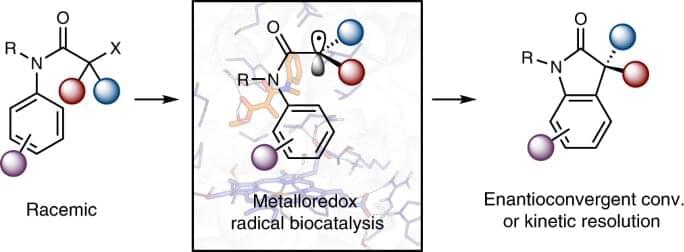One of the central challenges for synthetic chemists is to impose control over free radicals. Highly reactive molecules with an unpaired electron, free radicals, may be familiar to you; these are the type of molecules we take antioxidant supplements for, in an effort to tame oxidative stress.
In the world of synthetic chemistry, however, free radicals hold a lot of promise.
“Free radical chemistry is very useful for the synthesis of both bioactive small molecules and everyday polymers,” said UC Santa Barbara chemistry professor Yang Yang, an author of a paper on the matter that appears in Nature Catalysis. “However, imposing stereocontrol over free-radical mediated reactions has eluded the asymmetric catalysis community for decades. We’re trying to develop biocatalytic strategies to further push the boundaries of free radical chemistry.”









Comments are closed.